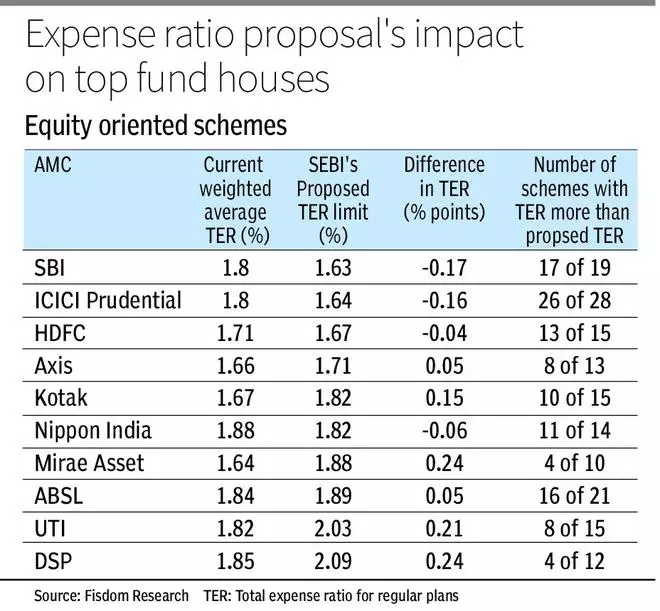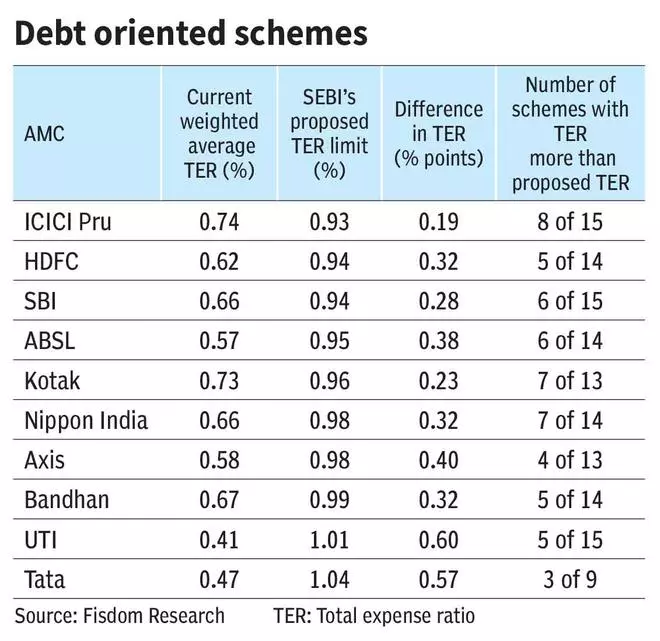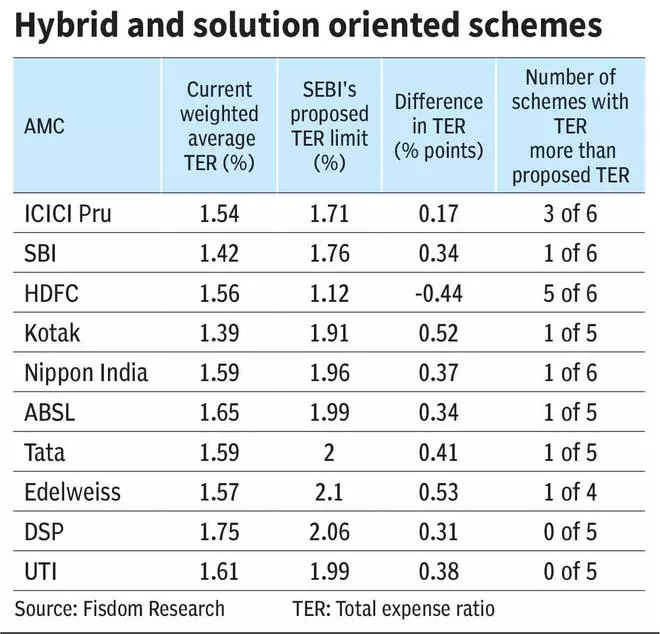Market regulator SEBI recently suggested that fund houses must charge expenses at the AMC level by arriving at a weighted average expense ratio for each category, rather than at the scheme level.
Based on the new slabs and expense ratios for each put out by SEBI, retail investors would be keen to know the benefit that is likely to accrue to them.
A study of the current total expense ratio (TER) and the proposed revised charges by Fisdom Research on SEBI’s proposals for all three categories — equity, debt, and hybrid — indicates that among the top 10 AMCs, the impact is felt most on equity-oriented schemes. These are based on April 2023 assets of fund houses.
Equity funds savings
The tables show the current TER calculated based on the weighted average formula given by SEBI for each asset class, the proposed TER, and the difference between the two charges. Then, the number of schemes that currently charge a higher TER than the proposed expense ratio is given for each fund house.

In equity-oriented schemes, ICICI Prudential, SBI, HDFC and Nippon India are the fund houses whose weighted average TER is more than the regulator’s proposed limit. Unsurprisingly, these fund houses have the greatest number of actively managed equity schemes that charge more than the proposed TER.
But even among fund houses charging lower than the proposed TER at the aggregate level, between 40 per cent and 70 per cent of the equity schemes levied higher charges than SEBI’s new suggested limit.
Debt, hybrid funds
One of the points raised by SEBI in its discussion paper was that in the debt-oriented category, which is dominated by corporates by assets under management, fund houses actually charged much less.
And sure enough, going by Fisdom Research, none of the top 10 fund houses in the debt category currently charges more than the proposed TER limit. In fact, they charge 19 to 60 basis points lower. But at the scheme level, only 30-50 per cent of the schemes charged more than SEBI’s proposed limit.

Among hybrid schemes, only HDFC in the top 10 AMCs charged more at the aggregate level and at the scheme level. Five of its six hybrid schemes charged more than the proposed limit, while for ICICI Prudential, it was 3 of 6.

SEBI’s proposed charges are still at the consultation stage. But if these are accepted, retail investors can hope for reasonable reduction in scheme TERs, which when compounded over the long term can result in significant savings.





Comments
Comments have to be in English, and in full sentences. They cannot be abusive or personal. Please abide by our community guidelines for posting your comments.
We have migrated to a new commenting platform. If you are already a registered user of TheHindu Businessline and logged in, you may continue to engage with our articles. If you do not have an account please register and login to post comments. Users can access their older comments by logging into their accounts on Vuukle.